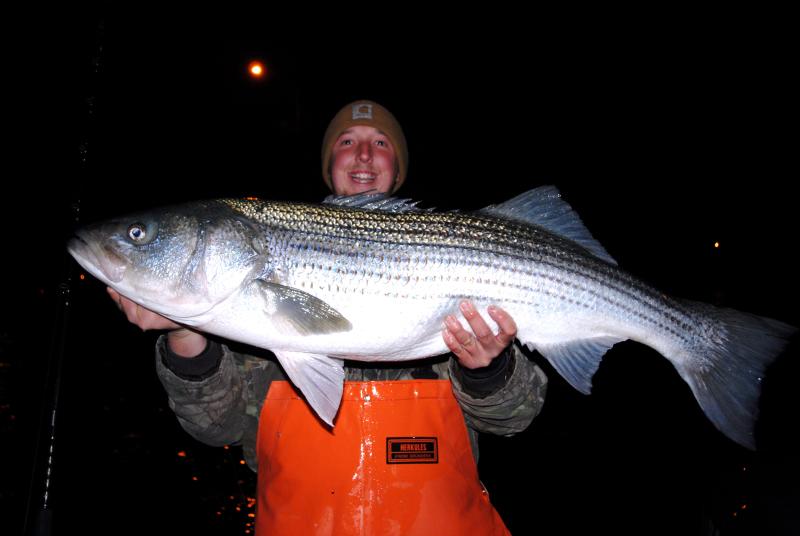Nighttime fishing at Indian River Inlet
It is said that only mad dogs and Englishmen go out in the noonday sun. Exactly who said that and why remains a mystery, at least to me, but with the heat of summer upon us, I don’t suggest anyone go out in the noonday sun unless you are getting paid a lot of money.
There was a time when I did a great deal of fishing at night. When I was fresh out of the Navy in 1965, we camped at the south side of Indian River Inlet and fished that side from the end of the jetty back to the end of the campground. We fished both day and night, depending on the tides. Then as now, we liked the incoming water.
When I say we, I refer to a small group of anglers, many of whom I did not know other than by the company name on the back of the yellow rain slickers they wore. Most of us worked construction, some others worked for General Motors, Sun Oil, DuPont or one of the many other big plants that are no longer around.
One Native American gentleman was an ironworker. I was on a new job in Wilmington when I saw a man riding from the top of a very tall building down to the ground by holding on to the cable of a crane with one foot in the hook. Yep, it was my fishing buddy.
Most of the time, we would begin as far out on the jetty as we could get due to the wave action. I like to fish right where the beach meets the inlet and the sand washes through. Remember this was back in the day when the trout were beginning to make their presence known. Sorta like today.
Almost everybody used a white bucktail and white worm. Sorta like today. The striped bass we caught were small and would not count today. Back than, they went home with us.
One dark and rainy night, I had a very hard strike and thought I had finally hooked my 50-pounder. I could not see the big fish out in the inlet, but I heard it jump a couple of times. I finally got it coming toward the beach and my friend was at the water’s edge ready to gaff my trophy when he jumped back past where I was standing.
“What the hell is that thing?” he screamed.
When I reeled in the line and got close to fish, I saw it was a cow-nose ray.
I did gaff it and dragged it back to my tent.
The next morning, the ray drew quite a crowd. I cleaned it and ate it, but it wasn’t very good.
Should you decide to fish at night, you will need some special equipment. First and foremost, you will need proper footwear. You cannot walk on slippery rocks in sneakers, boat shoes, boots or any type of footwear that doesn’t have metal cleats. Back in my day, we had some stainless-steel, custom-made creepers if you knew a metalworker who had a supply of the base material. Unfortunately, I did not know such a person and had to use golf spikes in slip-on rubbers that I wore over my sneakers. They worked just fine, but I lusted for a pair of the stainless-steel ones. Finally got a pair at auction a couple of years ago.
As for lights, you must never shine a white light on the water. Those who do take a chance of receiving bodily harm from the fishermen anywhere near them. You must use a very small red light if you have to use any light at all. All fish have very sensitive eyes at night. A bright, white light that hits their eyes will blind them and send them to deeper water.
Most night fishermen tend to move from one place to another. I use a small tackle bag that can carry a selection of lures, rigs and tools that I may need for whatever I plan to fish for and how I plan to fish.
I have been drifting sand fleas for striped bass since the 1960s. This technique does not require walking on slippery rocks or being washed overboard by waves. You can just pick a spot, set up a chair and drift your sand fleas all night long.
Jetty fishermen are a different breed. They don’t say much and seldom brag about their catch. They work the rocks at night and usually dress for the work at hand. They will have the proper footwear, foul-weather outfit and only carry their favorite lures. Most likely you will find bucktails, SP Minnows and WindCheaters in their pack. Casting live eels is not out of the question.
Fishing at night is a true adventure – just be careful out there.


























































